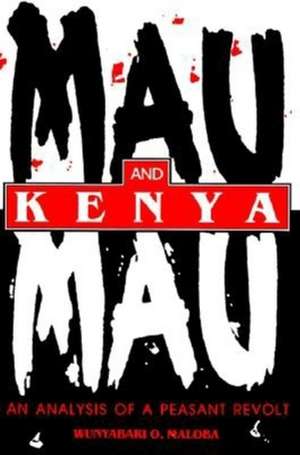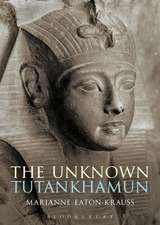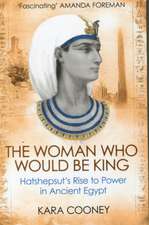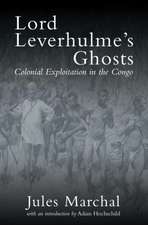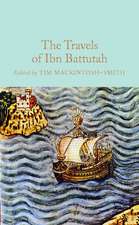Mau Mau and Kenya – An Analysis of a Peasant Revolt
Autor Wunyabari O. Malobaen Limba Engleză Paperback – 21 mar 1998
"Mau Mau and Kenya is a well written work which provides a clear and candid picture of the highly complex movements that were Mau Mau." African History
Mau Mau and Kenya traces a unique peasant revolt against British colonialism. Was Mau Mau a national effort or an ethnic outburst? What were its political aims? Maloba describes the participants and their differing ideologies; relationships between the revolt and the conventional party politics of the Kenya African Union; and the impact of Mau Mau on decolonization in Kenya."
Preț: 103.15 lei
Nou
Puncte Express: 155
Preț estimativ în valută:
19.75€ • 20.31$ • 16.38£
19.75€ • 20.31$ • 16.38£
Carte disponibilă
Livrare economică 27 ianuarie-10 februarie
Livrare express 11-17 ianuarie pentru 25.69 lei
Preluare comenzi: 021 569.72.76
Specificații
ISBN-13: 9780253211668
ISBN-10: 0253211662
Pagini: 240
Dimensiuni: 155 x 233 x 17 mm
Greutate: 0.38 kg
Editura: MH – Indiana University Press
ISBN-10: 0253211662
Pagini: 240
Dimensiuni: 155 x 233 x 17 mm
Greutate: 0.38 kg
Editura: MH – Indiana University Press
Textul de pe ultima copertă
Mau Mau and Kenya widens the debate about the Mau Mau revolt and adds an African voice to the examination and interpretation of an important event in African history. Wunyabari Maloba traces this unique peasant revolt against British colonialism offering a fresh look at a movement that has been ""reinvented"" by ideologues on the Left and Right in postcolonial Kenya. Was Mau Mau a national effort or an ethnic outburst? What were its political aims? Maloba describes the Mau Mau legacy, concentrating on three issues: participants and their differing ideologies; relationships between the revolt and the conventional party politics of the Kenya African Union; and the impact of Mau Mau on decolonization in Kenya. Maloba argues that Mau Mau's various factions disagreed over aims and objectives, and that this lack of a cohesive revolutionary ideology influenced the shape and destiny of the revolt. He compares Mau Mau, as an anti-colonial peasant movement, to European and Third World revolutionary movements. In placing the Mau Mau rebellion within the framework of theoretical debates about social movements, Maloba demonstrates that its aim, like that of other peasant revolts, was the overthrow of colonial domination and the attainment of national independence. Mau Mau and Kenya makes a significant contribution to postwar Kenyan historiography.
